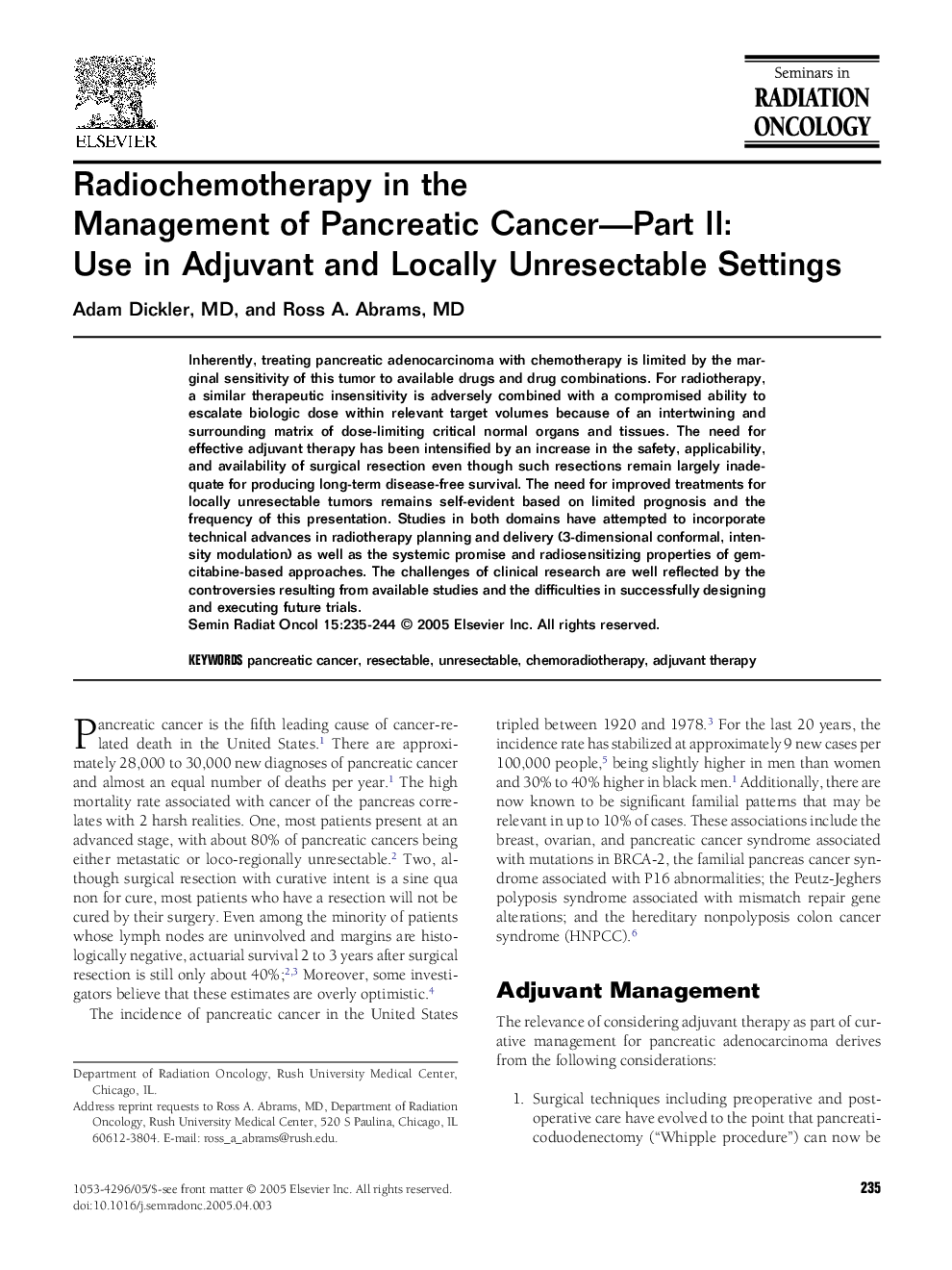| Article ID | Journal | Published Year | Pages | File Type |
|---|---|---|---|---|
| 9088473 | Seminars in Radiation Oncology | 2005 | 10 Pages |
Abstract
Inherently, treating pancreatic adenocarcinoma with chemotherapy is limited by the marginal sensitivity of this tumor to available drugs and drug combinations. For radiotherapy, a similar therapeutic insensitivity is adversely combined with a compromised ability to escalate biologic dose within relevant target volumes because of an intertwining and surrounding matrix of dose-limiting critical normal organs and tissues. The need for effective adjuvant therapy has been intensified by an increase in the safety, applicability, and availability of surgical resection even though such resections remain largely inadequate for producing long-term disease-free survival. The need for improved treatments for locally unresectable tumors remains self-evident based on limited prognosis and the frequency of this presentation. Studies in both domains have attempted to incorporate technical advances in radiotherapy planning and delivery (3-dimensional conformal, intensity modulation) as well as the systemic promise and radiosensitizing properties of gemcitabine-based approaches. The challenges of clinical research are well reflected by the controversies resulting from available studies and the difficulties in successfully designing and executing future trials.
Related Topics
Health Sciences
Medicine and Dentistry
Oncology
Authors
Adam MD, Ross A. MD,
